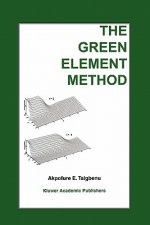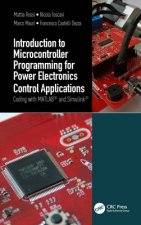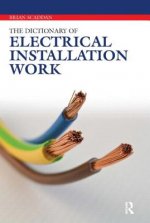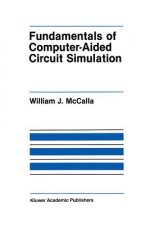
Kód: 01434813
Control of Fuel Cell Power Systems
Autor Jay T. Pukrushpan, Anna G. Stefanopoulou, Huei Peng
The problem of greenhouse gas (particularly carbon dioxide) release during power generation in fixed and mobile systems is widely acknowledged. Fuel cells are electrochemical devices offering clean and efficient energy production ... celý popis
- Jazyk:
 Angličtina
Angličtina - Vazba: Brožovaná
- Počet stran: 161
Nakladatelství: Springer London Ltd, 2010
- Více informací o knize

4943 Kč

Skladem u dodavatele v malém množství
Odesíláme za 13-16 dnů
Potřebujete více kusů?Máte-li zájem o více kusů, prověřte, prosím, nejprve dostupnost titulu na naši zákaznické podpoře.
Přidat mezi přání
Mohlo by se vám také líbit
-

Level 4: Disney Aristocats
270 Kč -

Audi A4, Audi A4 Avant
757 Kč -

Personality Coherence and Incoherence
2548 Kč -

Green Element Method
4671 Kč -

Sovereign Wealth Funds
3828 Kč -

Truly, We Both Loved Beauty Dearly!
224 Kč -

Les innovations thérapeutiques en onco-urologie
2736 Kč -

Die Erziehungsfrage als soziale Frage
394 Kč -

Virginia Papers on the Presidency
1473 Kč -

Mexico and the North American Free Trade Agreement
5460 Kč -

Data Wise
982 Kč -

Six Lectures on Light
1317 Kč -

Relazioni degli ambasciatori Veneti al senato
1837 Kč -

Pharmacological Sciences: Perspectives for Research and Therapy in the Late 1990s
3037 Kč
Darujte tuto knihu ještě dnes
- Objednejte knihu a zvolte Zaslat jako dárek.
- Obratem obdržíte darovací poukaz na knihu, který můžete ihned předat obdarovanému.
- Knihu zašleme na adresu obdarovaného, o nic se nestaráte.
Více informací o knize Control of Fuel Cell Power Systems
Nákupem získáte 494 bodů
 Anotace knihy
Anotace knihy
The problem of greenhouse gas (particularly carbon dioxide) release during power generation in fixed and mobile systems is widely acknowledged. Fuel cells are electrochemical devices offering clean and efficient energy production by the direct conversion of gaseous fuel into electricity. As such, they are under active study for commercial stationary power generation, residential applications and in transportation. The control of fuel cell systems under a variety of environmental conditions and over a wide operating range is a crucial factor in making them viable for extensive use in every-day technology. §In Control of Fuel Cell Power Systems the application of fuel cells in automotive powertrains is emphasized because of the significance of the contribution to global CO2 emissions made by ground vehicle propulsion and because of the challenge presented by the accompanying control problems. The authors comprehensive control-oriented approach provides: An overview of the underlying physical principles and the main control objectives and difficulties associated with the implementation of fuel cell systems. System-level dynamic models derived from the physical principles of the processes involved. Formulation, in-depth analysis and detailed control design for two critical control problems, namely, the control of the cathode oxygen supply for a high-pressure direct hydrogen fuel cell system and control of the anode hydrogen supply from a natural gas fuel processor system. Multivariable controllers that attenuate restraints resulting from lack of sensor fidelity or actuator authority. Real-time observers for stack variables that confer redundancy in fault detection processes. Examples of the assistance of control analysis in fuel cell redesign and performance improvement. Downloadable SIMULINK® model of a fuel cell for immediate use supplemented by sample MATLAB® files with which to run it and reproduce some of the book plots. §Primarily intended for researchers and students with a control background looking to expand their knowledge of fuel cell technology, Control of Fuel Cell Power Systems will also appeal to practicing fuel cell engineers through the simplicity of its models and the application of control algorithms in concrete case studies. The thorough coverage of control design will be of benefit to scientists dealing with the electrochemical, materials and fluid-dynamic aspects of fuel cells. §Advances in Industrial Control aims to report and encourage the transfer of technology in control engineering. The rapid development of control technology has an impact on all areas of the control discipline. The series offers an opportunity for researchers to present an extended exposition of new work in all aspects of industrial control.Presenting the latest research in the control of fuel cell technology, this book will contribute to the commercial viability of the technology. The authors background in automotive technology gives the work added authority as a vital element of future planning.The problem of greenhouse gas (particularly carbon dioxide) release during power generation in fixed and mobile systems is widely acknowledged. Fuel cells are electrochemical devices offering clean and efficient energy production by the direct conversion of gaseous fuel into electricity. As such, they are under active study for commercial stationary power generation, residential applications and in transportation. The control of fuel cell systems under a variety of environmental conditions and over a wide operating range is a crucial factor in making them viable for extensive use in every-day technology. §In Control of Fuel Cell Power Systems the application of fuel cells in automotive powertrains is emphasized because of the significance of the contribution to global CO2 emissions made by ground vehicle propulsion and because of the challenge presented by the accompanying control problems. The authors comprehensive control-oriented approach provides: An overview of the underlying physical principles and the main control objectives and difficulties associated with the implementation of fuel cell systems. System-level dynamic models derived from the physical principles of the processes involved. Formulation, in-depth analysis and detailed control design for two critical control problems, namely, the control of the cathode oxygen supply for a high-pressure direct hydrogen fuel cell system and control of the anode hydrogen supply from a natural gas fuel processor system. Multivariable controllers that attenuate restraints resulting from lack of sensor fidelity or actuator authority. Real-time observers for stack variables that confer redundancy in fault detection processes. Examples of the assistance of control analysis in fuel cell redesign and performance improvement. Downloadable SIMULINK® model of a fuel cell for immediate use supplemented by sample MATLAB® files with which to run it and reproduce some of the book plots. §Primarily intended for researchers and students with a control background looking to expand their knowledge of fuel cell technology, Control of Fuel Cell Power Systems will also appeal to practicing fuel cell engineers through the simplicity of its models and the application of control algorithms in concrete case studies. The thorough coverage of control design will be of benefit to scientists dealing with the electrochemical, materials and fluid-dynamic aspects of fuel cells.
 Parametry knihy
Parametry knihy
Zařazení knihy Knihy v angličtině Technology, engineering, agriculture Energy technology & engineering Electrical engineering
4943 Kč
- Plný název: Control of Fuel Cell Power Systems
- Podnázev: Principles, Modeling, Analysis and Feedback Design
- Autor: Jay T. Pukrushpan, Anna G. Stefanopoulou, Huei Peng
- Jazyk:
 Angličtina
Angličtina - Vazba: Brožovaná
- Počet stran: 161
- EAN: 9781849969284
- ISBN: 1849969280
- ID: 01434813
- Nakladatelství: Springer London Ltd
- Hmotnost: 284 g
- Rozměry: 235 × 155 × 11 mm
- Datum vydání: 21. October 2010
Oblíbené z jiného soudku
-

Piezoelectricity: Volume One: An Introduction to the Theory and Applications of Electromechanical Phenomena in Crystals
720 Kč -

Piezoelectricity: Volume Two: An Introduction to the Theory and Applications of Electromechanical Phenomena in Crystals
720 Kč -

Electrical Engineering Textbook
1659 Kč -

Transformer Engineering
6692 Kč -

Linden's Handbook of Batteries, Fifth Edition
4371 Kč -

Electrical Engineering: Principles & Applications, Global Edition
3006 Kč -

Prüfungstrainer Elektrotechnik, m. 1 Buch, m. 1 E-Book
1009 Kč -

Computational Electrodynamics: The Finite-Difference Time-Domain Method, Third Edition
4250 Kč -

Computer Systems: A Programmer's Perspective, Global Edition
1909 Kč -

Requirements for Electrical Installations, IET Wiring Regulations, Eighteenth Edition, BS 7671:2018+A2:2022
3581 Kč -

Fundamentals of Pneumatics and Hydraulics
3582 Kč -

Digital Image Processing, Global Edition
2237 Kč -

Magnetic Current
206 Kč -

Introduction to Microcontroller Programming for Power Electronics Control Applications
1758 Kč -

Hydrogen Revolution
501 Kč -

Electrical Machines
2607 Kč -

Tabellenbuch Elektrotechnik
750 Kč -

Switch-Mode Power Supplies, Second Edition
4586 Kč -

Further Electrical and Electronic Principles
1728 Kč -

Fitzgerald & Kingsley's Electric Machinery
7919 Kč -

Fundamentals of Logic Design, Enhanced Edition
2423 Kč -

Electric Power
4944 Kč -

Electrical Engineering 101
838 Kč -

Electric Motors and Drives
1530 Kč -

Switching Power Supply Design and Optimization, Second Edition
4372 Kč -

Build Your Own Electric Vehicle, Third Edition
713 Kč -

Feedback Control of Dynamic Systems, Global Edition
2745 Kč -

Common Lisp: A Gentle Introduction to Symbolic Computation
711 Kč -

Nikola Tesla
654 Kč -

Power Electronics: Devices, Circuits, and Applications
2615 Kč -

Computer Networks: Pearson New International Edition
1805 Kč -

Troubleshooting and Repairing Major Appliances
1341 Kč -

Switching Power Supplies A - Z
1636 Kč -

Radar Handbook, Third Edition
4652 Kč -

Introduction to Electrical Installation Work
1597 Kč -

Photovoltaic System Design
3909 Kč -

Dictionary of Electrical Installation Work
1597 Kč -

Principles and Applications of Lithium Secondary Batteries
3432 Kč -

Zynq Book
1048 Kč -

Nikola Tesla
844 Kč -

Digital System Design with FPGA: Implementation Using Verilog and VHDL
2590 Kč -

Schaum's Outline of Electric Circuits, Seventh Edition
424 Kč -

Anova Sous Vide Cookbook
689 Kč -

Fundamentals of Computer-Aided Circuit Simulation
4671 Kč -

ULTIMATE Tesla Coil Design and Construction Guide
1124 Kč -

Control System Design
702 Kč -

Electrical Engineering: Know It All
1577 Kč -

Electrician's Trade Demystified
718 Kč -

Manual of Repairing & Reconditioning Starter Motors and Alternators
455 Kč
Osobní odběr Praha, Brno a 12903 dalších
Copyright ©2008-24 nejlevnejsi-knihy.cz Všechna práva vyhrazenaSoukromíCookies


 Vrácení do měsíce
Vrácení do měsíce 571 999 099 (8-15.30h)
571 999 099 (8-15.30h)